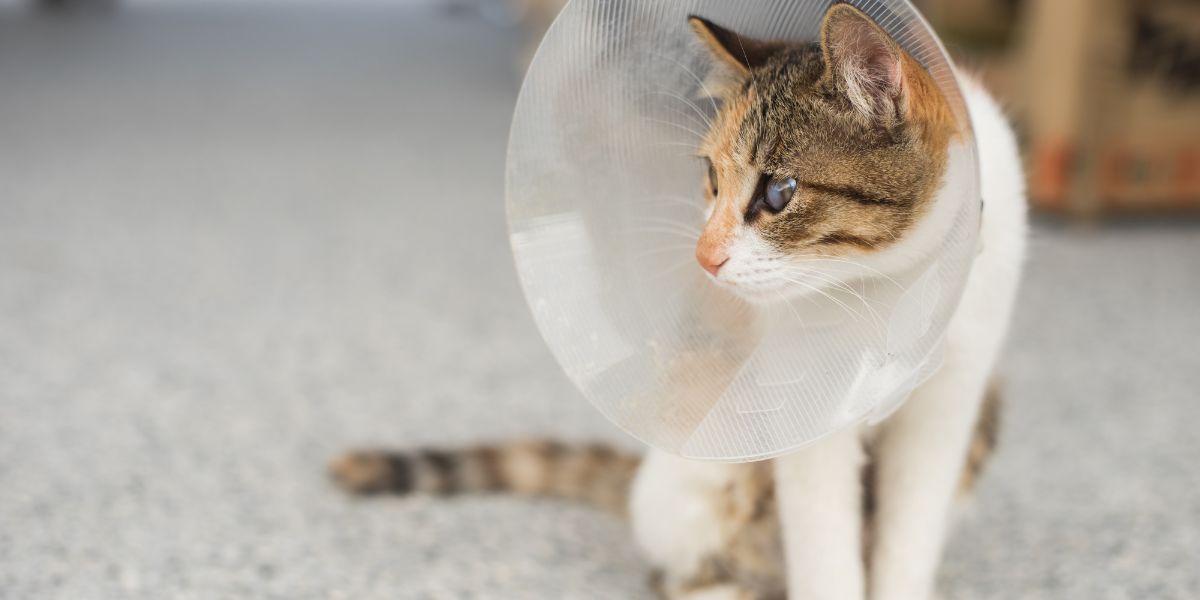Cat neutering – when to neuter cats and other helpful information
Cat neutering is a topic of interest for those who have these cute little felines in their yard or home. Kittens are cute, but more often than not, kittens end up living on the streets. Stray cats mate quite often, and the kittens live on the streets or even die due to unsanitary conditions. Having a pet is a huge responsibility, so when you adopt or buy a cat or dog, you are making a commitment that you must honour. That is why spaying or neutering pets is the most effective method by which we can ensure that there will be no puppies that lead a hard life on the streets without an owner to take care of them.
Cat neutering – why is it important?
Cat neutering is essential, as your cat will avoid unwanted pregnancies and be protected from certain diseases. The little feline can become pregnant when your cat reaches sexual maturity between four and six months.
Sterilization is a simple operation that takes a short time and involves the removal of the cat’s sexual reproductive organs. In females, it is called sterilization and involves the removal of the ovaries and uterus through surgical intervention in the abdominal area. Males are castrated, and it involves the removal of the testicles.
Sterilization of cats and castration of kittens is also essential for medical reasons. If this operation is performed young, complications at the genitourinary level will be prevented. It also reduces the risk of contracting the Feline Immunodeficiency virus by reducing the aggression caused by hormonal changes. The risk of cervical, ovarian and breast cancer is reduced.
There are many stray cats on the streets. Shelters are also overcrowded. That is why the sterilization of pets is a necessity for animal protection. When they are not castrated or sterilized, they are much more aggressive, especially the tomcats, who try to mark their territory. When cats are in heat, males may be in permanent fights.
At what age are cats neutered?
The best time to spay or neuter cats is between six and eight months when they reach sexual maturity. Some breeds reach sexual maturity much later. So, when we go to the vet to sterilize the cat, we must consider several factors. It is advisable to spay females after their first heat cycle, which happens around six months. You will notice specific behavioural changes, such as excessive meowing, rubbing against furniture or your legs, and adopting a mating position whenever your back is touched.
Cat neutering – advantages
Cat neutering has certain advantages:
– There will be no more unwanted babies
– Eliminating the risk of constantly entering the heat
– The sterilized cat will be protected from diseases such as urinary tract infections, breast, ovarian or cervical cancer
– Cats have a more docile behaviour. They are more relaxed and confident
– Life expectancy is increasing
– They no longer have such a high level of aggression
Cat neutering – possible complications
Cat neutering may have some complications, just like any other surgical procedure. Thus, there is a given risk of anesthesia; therefore, the veterinarian will check the animal’s tolerance to the anesthetic before the procedure. There is also a risk of bleeding. During the procedure, the blood vessels of the ovaries or testicles are tied with so-called ligatures. There is a risk that this ligature can slip unnoticed, leading to bleeding. The cat should be closely monitored after the neutering operation and taken to the vet if it is very passive. Also, as is well known, cats naturally need to lick their wounds. But this way, the feline can remove its sutures, and the bacteria from the cat’s saliva can infect the surgical area. Therefore, it is recommended to put a collar on the cat so there is no risk of licking the wound after the operation.
Before the sterilization operation, the cat must not eat anything for at least 12 hours before the operation. The cat is allowed to drink water. It is essential to ensure that the cat is not in heat during the operation, as there is an increased risk of postoperative bleeding.
Cat neutering – choose premium food from Biotur
Cat neutering is essential for several reasons: the risk of developing genitourinary diseases is reduced, and there will no longer be so many stray cats on the streets.
Nutrition after neutering cats is essential. Thus, Biotur offers you premium food for sterilized cats. If the cat has been neutered, the pet’s diet must be changed. Choosing a dry food that can protect the cat’s kidneys and prevent obesity is essential. Also, with sterilization, the caloric requirement decreases by up to 30%.
Golosi Cat Sterilized is a specific food for sterilized cats with a great need for energy. The chicken is easily digestible, delicious, and ideal even for cats with complicated tastes.
Adding L-carnitine also helps burn fat by converting it into energy to avoid the risk of weight gain. At the same time, the high percentage of protein favours the maintenance of muscle mass, which is essential for cats who tend to be sedentary. Proper intake of magnesium and phosphorus promotes urinary tract health and helps control urinary pH.



